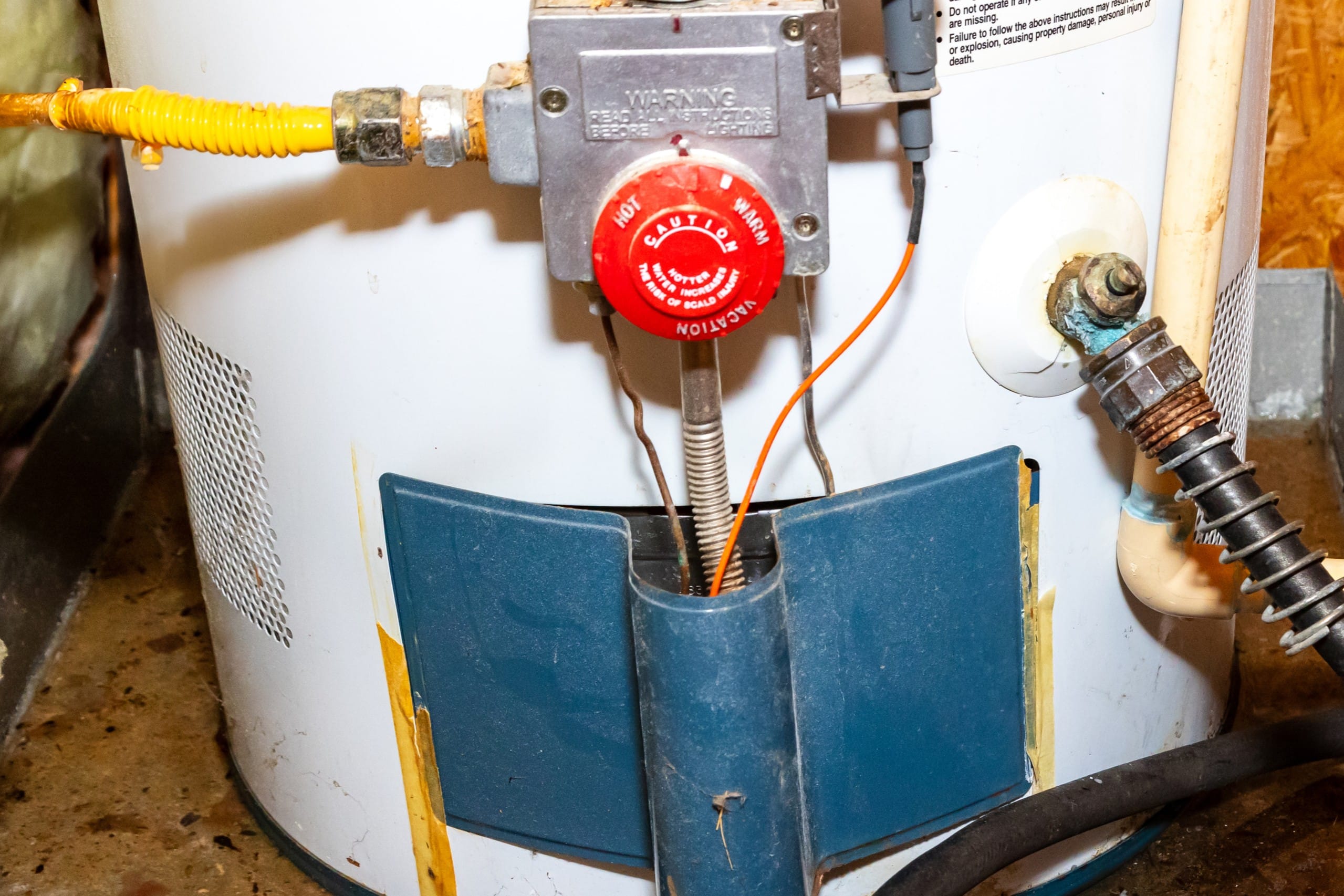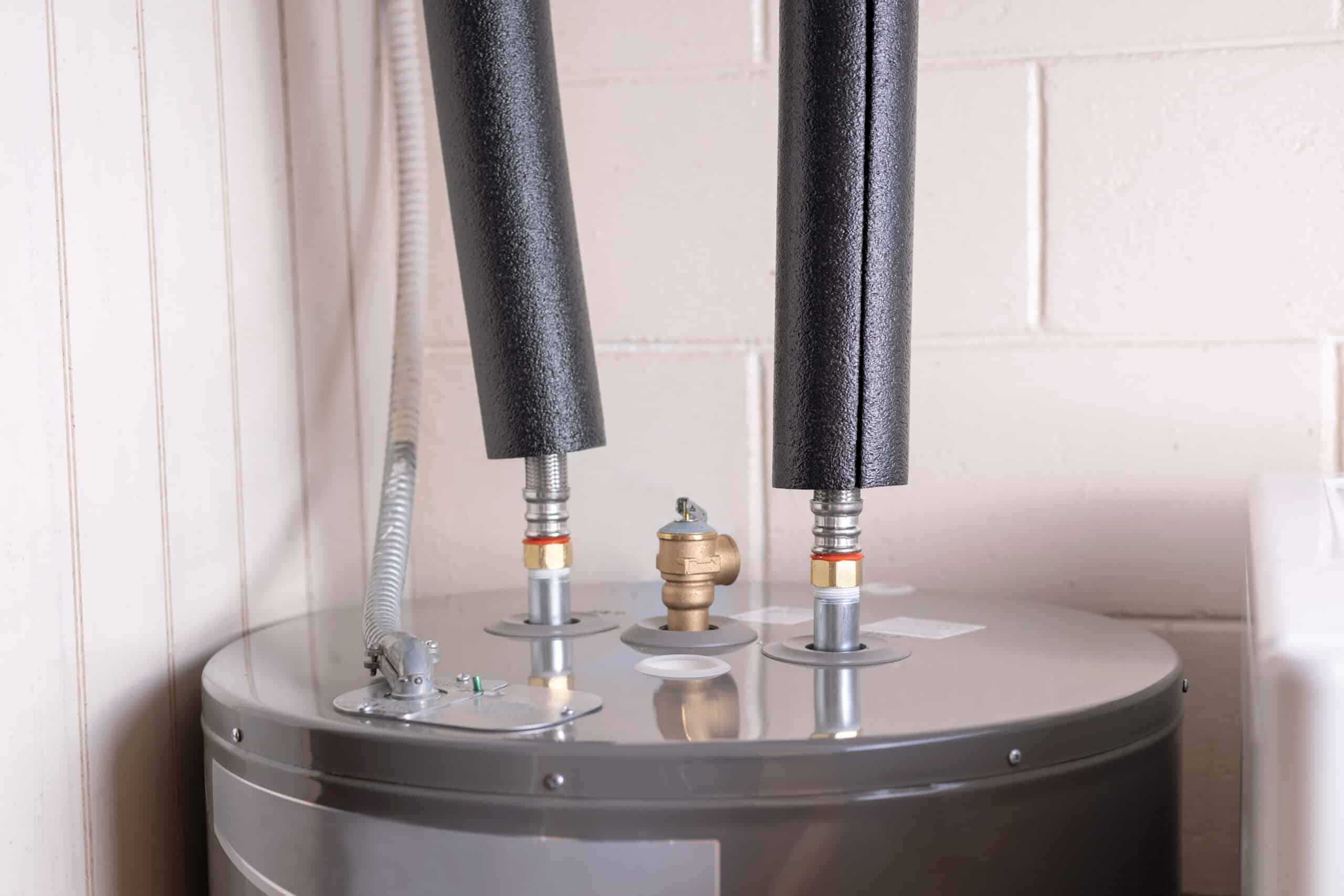Wondering if your water heater needs replacing can be a common concern for homeowners in Dallas, TX. It’s a crucial component of your home that ensures warm showers, clean dishes, and comfortable laundry cycles. Ignoring the warning signs of a failing water heater can lead to more than just an unexpected cold shower; it can cause costly damage to your home. Recognizing these signs early can save you time, money, and inconvenience.
One of the most obvious indicators that your water heater needs replacing is rust-colored water. If you notice a reddish tint when you turn on the hot water, it’s a sign that the inside of your tank may be corroding. This issue is not only unsightly but can also affect the quality of your water. Residents in Frisco, TX, experiencing this should consider it a clear signal for a replacement.
Another telltale sign is odd noises coming from your water heater. A healthy water heater should operate quietly. If you start hearing rumbling, banging, or creaking noises, it’s likely due to sediment buildup at the bottom of the tank. This can lead to inefficiency and damage, indicating that your water heater needs replacing sooner rather than later.
Recognizing the Signs Your Water Heater Needs Replacing
In addition to the signs already mentioned, water pooling around your heater is a clear indicator of trouble. This usually means there’s a leak or crack in the tank, which can lead to water damage in your home if not addressed. Homeowners in Dallas, TX, should take this seriously, as ignoring it could result in significant repair costs beyond just replacing the water heater. Prompt action can prevent the situation from worsening.
An increase in energy bills can also suggest your water heater needs replacing. As water heaters age, they often become less efficient, requiring more energy to heat the same amount of water. This inefficiency can lead to a noticeable rise in your monthly bills. Spotting this trend early can save you money in the long run and is a sign that your water heater might need a closer look.
Another aspect to consider is the age of your water heater. Most units have a lifespan of about 8 to 12 years. If yours is in this age range and you’re experiencing issues, it might be time for a replacement. Keeping track of your unit’s age can help you anticipate when it’s time to start shopping for a new one, avoiding the inconvenience of sudden failures.
Lastly, if repairs are becoming more frequent, it’s a strong indication that your water heater needs replacing. Constantly fixing your water heater not only becomes costly but also a sign that it’s nearing the end of its useful life. Instead of pouring money into endless repairs, investing in a new unit can be more economical and ensure reliable access to hot water.

The Age Factor: How Old Is Too Old for a Water Heater?
Understanding the age of your water heater is crucial when determining if it needs replacing. Most water heaters have a lifespan of 8 to 12 years. When your unit approaches this age, it’s wise to start monitoring it more closely for any of the previously mentioned signs. Homeowners in Dallas, TX, should consider the age of their water heater as a key factor in their maintenance and replacement decisions.
As your water heater ages, it may not show immediate signs of failure but gradually become less efficient. This decline in efficiency can sneak up on you, reflected in higher energy bills and longer wait times for hot water. Observing these changes can help you recognize when your water heater needs replacing, preventing the inconvenience of sudden breakdowns. It’s a proactive approach to ensure you always have access to hot water when you need it.
Another point to consider is the potential for more significant issues as the water heater nears the end of its lifespan. Older units are more prone to leaks and significant malfunctions, which can cause extensive damage to your home. Residents in Frisco, TX, facing such issues should take them as clear indicators that their water heater needs replacing. Acting before a major failure occurs can save you from costly repairs and damage to your property.
Lastly, if you find yourself having to repair your water heater more frequently as it ages, it’s a sign that replacement might be the more economical choice. Constant repairs can be both expensive and inconvenient. Investing in a new water heater can provide peace of mind, knowing that you have a reliable and efficient system in place. This decision can ultimately lead to savings and a more comfortable home environment.
Rust-Colored Water: A Clear Indicator of Trouble
When you notice rust-colored water flowing from your taps, it’s more than just an aesthetic issue. This problem often indicates that the inside of your water heater is corroding. In Dallas, TX, where water quality can vary, this sign should not be ignored. Acting quickly can prevent the corrosion from worsening and causing more significant issues.
The presence of rusty water is a strong hint that your water heater’s integrity is compromised. As the tank corrodes, small cracks or holes may develop, leading to leaks. Homeowners noticing this symptom should see it as a direct call to evaluate their water heater’s condition. Often, it’s the first clear sign that your water heater needs replacing.
Furthermore, rust in the water can affect its safety and usability for drinking, cooking, and bathing. If left unchecked, the problem can escalate, impacting not only your home’s plumbing but also your health. It’s essential to address this issue promptly to ensure the water in your home remains clean and safe. When health and comfort are at risk, it’s likely your water heater needs replacing.
Lastly, replacing a water heater that produces rust-colored water is often more cost-effective than attempting repairs. Given the potential for ongoing damage and the impact on water quality, investing in a new unit is a wise decision. Homeowners in Frisco, TX, facing this issue should consider replacement to guarantee a reliable supply of clean, hot water. Don’t wait until a major leak confirms it, recognize when your water heater needs replacing.
Unusual Noises: What Your Water Heater is Telling You
Hearing unusual noises from your water heater can be alarming and is often a sign that your water heater needs replacing. These sounds, which can range from popping to whining, indicate that sediment has built up at the bottom of the tank. In Dallas, TX, hard water can accelerate this buildup, reducing your heater’s efficiency and lifespan. Addressing this issue early can prevent further damage and save you from unexpected breakdowns.
If your water heater starts making noises, it’s telling you that it’s working harder than it should. This extra effort not only strains the system but can also lead to higher energy bills. Residents in Frisco, TX, noticing such sounds should take them as a clear warning. A new water heater can offer a more efficient solution, ensuring quiet operation and lower operating costs.
The sediment buildup responsible for these noises can also lead to uneven heating and hot water shortages. As the sediment insulates the water from the heater’s burner or element, it takes longer to heat the water, if it manages to heat it at all. This inefficiency is a telltale sign that your water heater needs replacing. Opting for a new unit can restore consistent hot water supply and improve your daily comfort.

Inconsistent Water Temperatures and What They Mean
Inconsistent water temperatures can be more than just a minor inconvenience; they’re a clear indication that your water heater needs replacing. When you start your day with a shower that suddenly turns from hot to cold, it’s a sign that your water heater is struggling. This inconsistency can disrupt your daily routine and is especially problematic in cities like Dallas, TX, where temperatures can vary. Homeowners experiencing this issue should see it as a direct sign that it’s time to consider a new water heater.
Dealing with fluctuating water temperatures can also point to a more serious underlying problem with your water heater. It might be failing to heat the water adequately due to internal issues, such as a malfunctioning thermostat or a broken heating element. These problems are not only frustrating but can also lead to higher energy consumption as the unit works harder to maintain the desired temperature. Residents in Frisco, TX, facing this dilemma should evaluate their water heater’s condition and efficiency.
Moreover, inconsistent temperatures could mean that your water heater is nearing the end of its lifespan. Most units are designed to last for a certain number of years, and as they age, their ability to provide consistent hot water diminishes. This decline in performance is a strong signal that your water heater needs replacing. Taking action before the unit fails completely can save you from the inconvenience of cold showers and potential water damage.
Lastly, addressing the issue of inconsistent water temperatures not only ensures comfort but also contributes to the overall energy efficiency of your home. A new water heater can provide reliable hot water on demand, reducing the need for constant adjustments and saving on energy bills. For homeowners in Dallas, TX, and surrounding areas, replacing an old or malfunctioning water heater is a smart investment in their home’s comfort and efficiency.
The Impact of Leaks: When to Act Fast
Discovering a leak in your water heater can be alarming, signaling that your water heater needs replacing. Leaks often start small but can quickly escalate, causing significant damage to your home if not addressed promptly. Homeowners in Dallas, TX, should inspect their water heaters regularly for any signs of moisture or water pooling around the base. Acting fast can prevent further damage and avoid the higher costs associated with major repairs or water damage restoration.
When water leaks from your heater, it’s not just about the immediate mess; it’s a clear indication that the unit’s integrity may be compromised. Over time, the metal tank of a water heater can corrode, leading to cracks or holes that allow water to escape. Residents in Frisco, TX, noticing any wetness or dampness around their water heater should take it seriously. It’s often more cost-effective to replace a leaking water heater than to attempt repairs, especially if the unit is old or has been problematic.
The presence of a leak can also significantly impact your home’s energy efficiency. A leaking water heater works harder to maintain the set water temperature, leading to increased energy consumption and higher utility bills. This inefficiency is a key sign that your water heater needs replacing, as a new unit can operate more effectively and use less energy. Upgrading to a more efficient model not only addresses the leak but also contributes to a more eco-friendly home.
Frequently Asked Questions About Water Heater Needs Replacing
How long do water heaters last?
Water heaters typically last between 8 to 12 years. However, this lifespan can shorten if regular maintenance is overlooked. Signs like rust-colored water or strange noises indicate your water heater needs replacing sooner. If you notice these symptoms, it might be time for a new unit.
What are signs of a failing water heater?
If your water heater starts making unusual noises, like banging or rumbling, it’s a clear sign it may need replacing. Another indicator is when water doesn’t heat up as it should, pointing to a failing system. Leaks around the unit signal immediate attention is needed to prevent water damage. Lastly, if your water starts looking rusty or murky, it’s time to consider a new water heater.
When is it time for a water heater replacement?
Knowing when to replace your water heater is crucial for avoiding cold showers and potential water damage. If your unit is over 10 years old, showing signs of rust in the water, or making loud noises, it’s likely time for a new one. Inconsistent water temperatures or a leaking tank also signal the need for replacement. Acting quickly can save you from higher energy bills and more serious damage to your home.
What causes a water heater to fail?
Several factors can lead to a water heater failing. Over time, sediment buildup can cause the tank to corrode, reducing its efficiency. Lack of regular maintenance, such as flushing the tank, often results in premature failure. Additionally, improper installation can strain the system, leading to early breakdowns. Lastly, age plays a significant role, as older units are more prone to issues that signify your water heater needs replacing.
Can a water heater needs replacing without leaking?
Yes, your water heater can require replacing even if it’s not leaking. Signs like inconsistent heating, strange noises, and rusty water can indicate it’s time for a new one. Age is also a critical factor, as older units lose efficiency and performance. Acting before a leak occurs can prevent further damage and save on costs.





